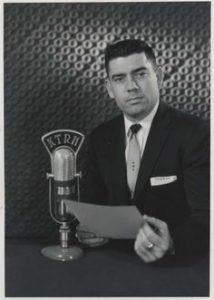 How did we get here? That’s a question that’s being asked more and more. Where has civility gone? Have we come to the point where people are so tired of feeling bad that they feel the need to lash out at others?
How did we get here? That’s a question that’s being asked more and more. Where has civility gone? Have we come to the point where people are so tired of feeling bad that they feel the need to lash out at others?
I attended a recent conference that featured Evan Smith from the Texas Tribune. He spoke about how, as a society, we are choosing to get our information from sources that think like we do. Consider yourself a conservative? You’re probably watching Fox News. Lean more liberal? You are probably turning to CNN for your news.
The problem is that you are only getting one side to story that may have several (meaning even more than two!). Americans are not looking to get information to learn something, but rather looking for someone to validate their own beliefs and that’s where the trouble starts.
Doing this leads us to thinking we don’t need to compromise because there are plenty of people who think like we do right? Why should we give in, let the other guy deal with it. This leaves us running in place for the most part because nothing gets done (which actually could be a good thing).
Here’s something else to remember. While the right is getting their information from Fox and the left from CNN, there is a common denominator between both media giants, they are driven by profits which means, just like politicians, they play to their base (or audience).
I am not suggesting it’s #FakeNews, but than again, it’s not very good coverage of the news either.










